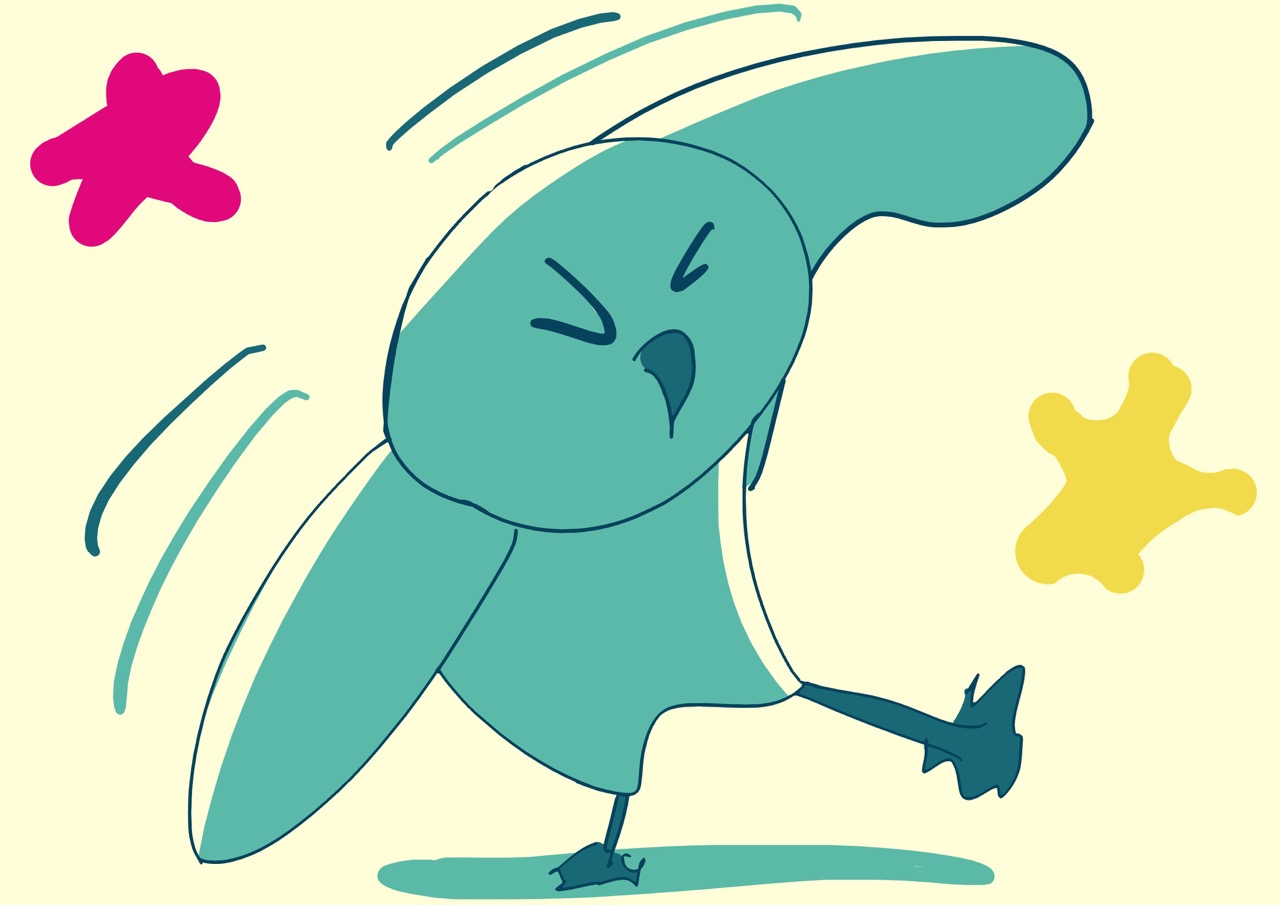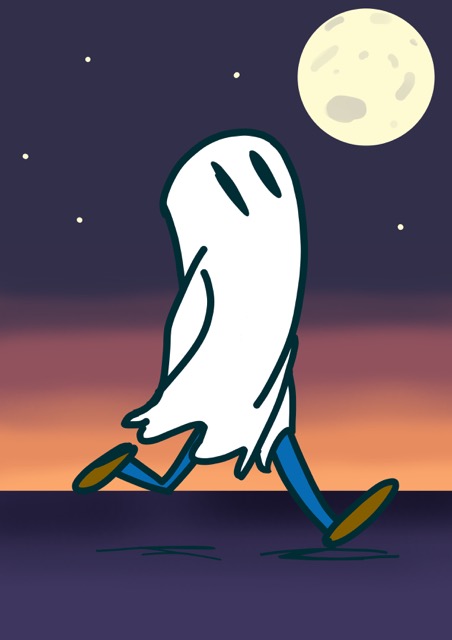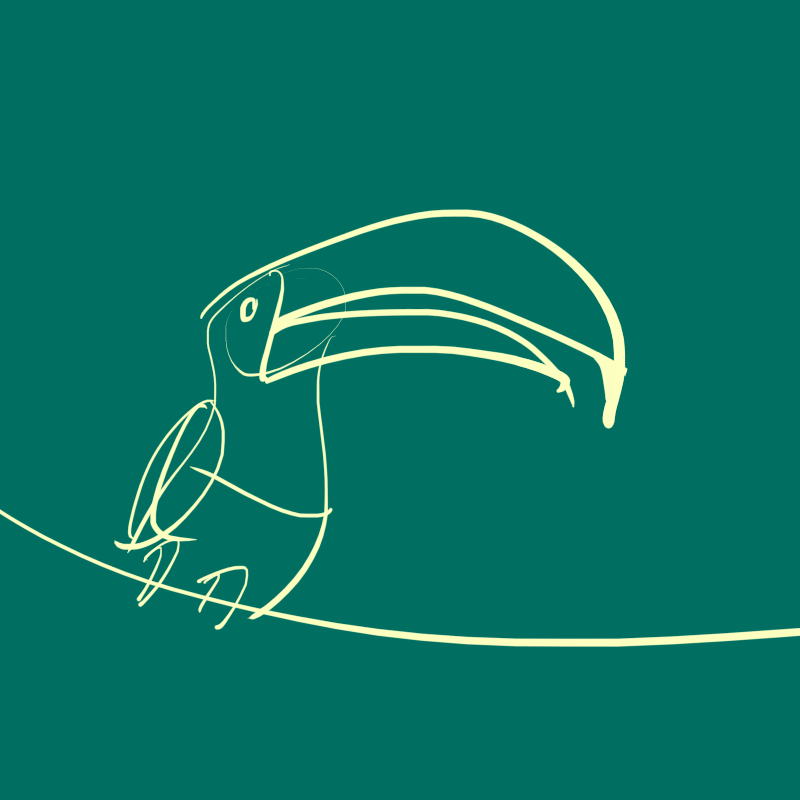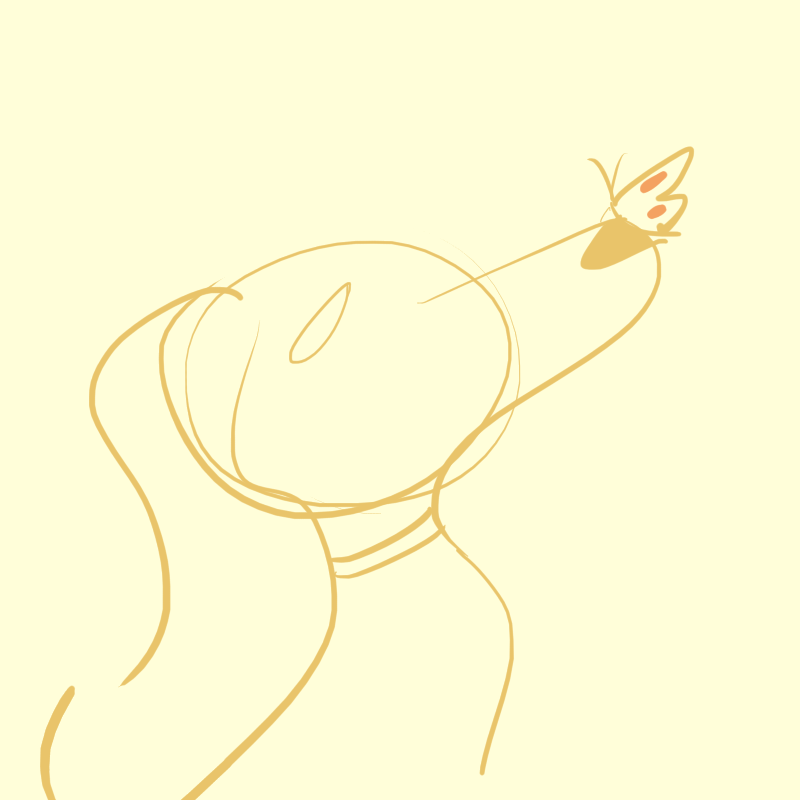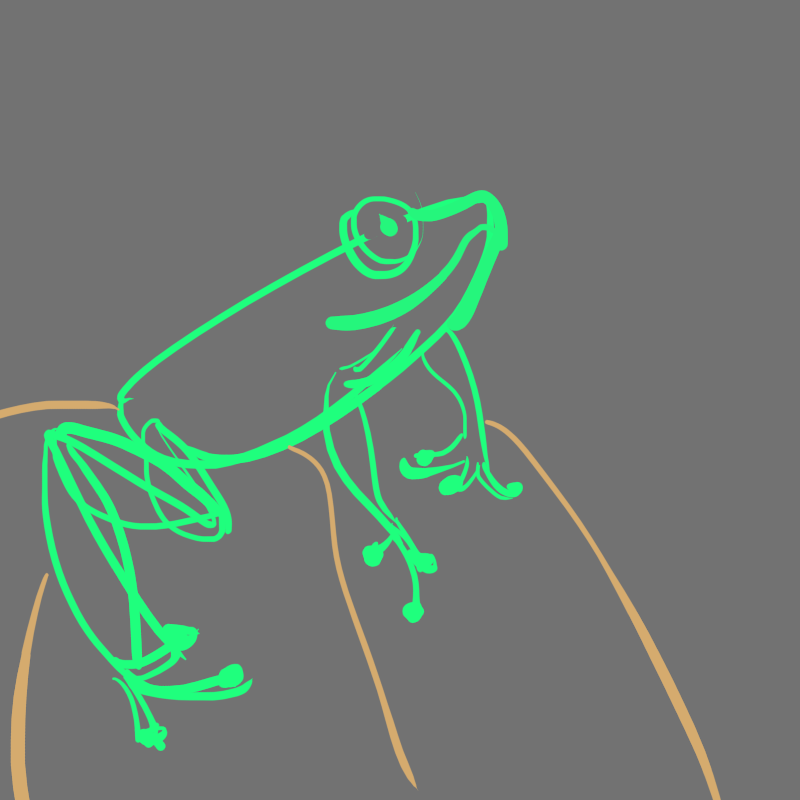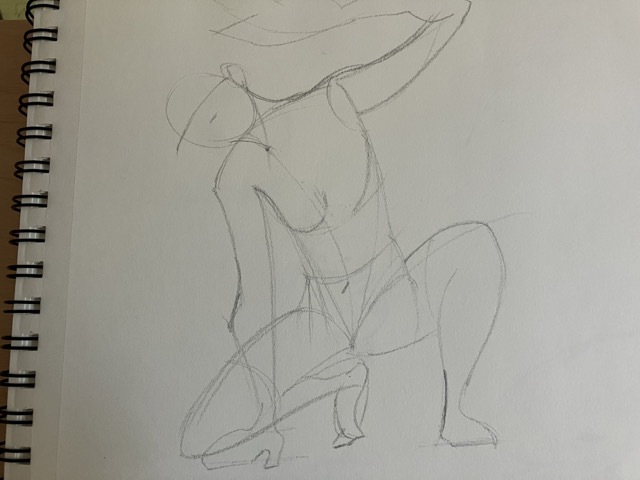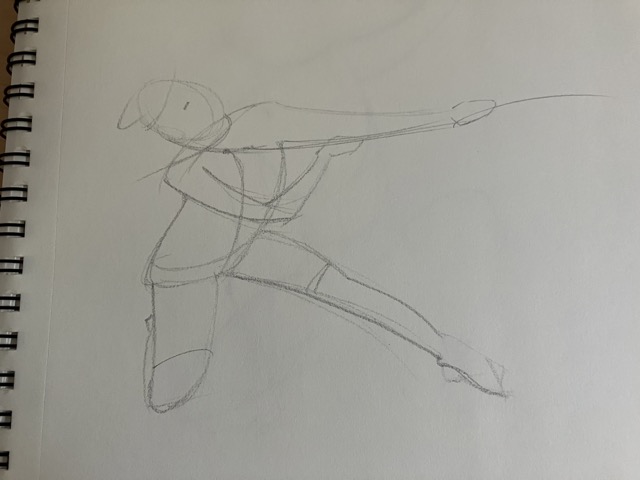Chris Padilla/Blog
My passion project! Posts spanning music, art, software, books, and more. Equal parts journal, sketchbook, mixtape, dev diary, and commonplace book.
- Redis stores data in-memory. RAM is used instead of disc space to store data
- It is a NoSQL Key/Value Store
- Redis has a built in master/replica pattern. Replica servers can defer to changes in master
- Can be stored on a disc at intervals of 5 minutes or an hour
- These are good for backups and disaster recovery
- You would lose an data stored between the last backup and the failure
- Logs every write operation continuously to the disk
- When restarting, it will use the AOF to rebuild the DB
- Slower restarts
- Potential for bugs in the AOF engine.
Just Friends
Lovers no more~
Trombone Gesture
Brunner - Rondoletto
Biiiiig finger twister! 🔀
WHO has the smoothest moves?
Structs in Go
There are two ways of creating datatypes similar to JavaScript Objects and Python Dictionaries in Go: Structs and Maps.
Structs are a collection of data that are related. Values are stored next to each other in memory. Structs are also a value type.
Maps are a hash map data type. They are a key value pair where both keys and values are statically typed individually. So all keys need to be of the same type, and all values need to be the same type. The main benefit is that, as a hash map, indexing and look up is much faster.
Let's break all that down:
Values are stored next to each other assuming the value will be lightweight. In this way, it's similar to an array where the keys are strings. Though, the values are not indexed the way that a hash map would for its keys. The tradeoff is that the value is lighter on memory, but slower to iterate through.
Structs are a value type. So if we were to pass them into a function, the entire struct would be copied. Maps, on the other hand, are a reference type. The address in memory for the Map is passed into a function and any changes to the map within the function will occur as a side effect to the same Map.
Structs
Declaring structs requires a type to be created first:
type car struct {
make string
model string
maxSpeed int
}
c := car{make: "Toyota", model: "Prius", maxSpeed: 120}Methods
Go isn't an Object Oriented Language, but like JavaScript, can be implemented with similar principles. An example is having methods on Structs:
type car struct {
make string
model string
maxSpeed int
}
func (c car) floorIt() int {
return c.maxSpeed
}
c := car{make: "Toyota", model: "Prius", maxSpeed: 120}
c.floorIt() // 120Embedding
Another OOP principle borrowed in Go is composition. In Go, we can embed structs to create more complex types while still maintaining the flexibility of smaller pieces available as individual structs.
type car struct {
make string
model string
maxSpeed int
}
type raceCar struct {
car
turboEngine string
}
rc := raceCar{
car: car{
make: "Toyota",
model: "Prius",
maxSpeed: 120,
},
turboEngine: "MAX"
}Go Performance
Performance and Memory
When looking at a language's performance, the two considerations here are memory usage and performance speed.
Taking two ends of the spectrum, we could look at Rust on one end and C# on the other.
C# is a high level language that requires interpreting through a Virtual Machine. (A strange example, perhaps, because C# does compile, but only to the Intermediary Language, and not directly to machine code) C# Also handles memory management. The overhead of the virtual machine and memory management leads to a fluid developer experience, but makes compromises in performance speed and memory usage.
Rust, on the other hand, is a compiled language. Meaning that to run rust, you'll build an executable from the human readable Rust code. This saves the time it would take a virtual machine to interpret the language. Or, in the case of Python or Ruby, it would eliminate the time it takes for the runtime to interpret the script.
Rust also requires the developer to do much of their own memory management. When written properly, this allows for really performant applications, since that's an extra bit of overhead taken off from running Rust code.
Where Go Fits
Go uniquely sits an a great position between these two ends to balance the benefits offered by a higher level language while still providing the speed of a compiled language.
Go does compile to machine code. You can run go build main.go to compile the script down to an exe file. So we get the benefit of quick execution, eliminating the need for interpretation time.
While doing so, Go bundles a much lighter package called the Go Runtime that handles Garbage Collection. With a specialized focus on memory management, this still allows for that DX experience while not adding as much overhead as the Java Runtime Environment or the Common Language Runtime in C#.
Comparisons of Go's speed are right between the end of compiled, non-Garbage Collected languages like C, C++, and Rust, and the higher level language features of Java and C#.
One added benefit of being compiled is having one less dependency in your deployment environment. The platform isn't required to have a specific version of a Go interpreter available to execute a program.
Parkening - A Minor Study
Lucy can tell when I'm about to finish recording, she knows rubs are soon to follow!
Halloween!
Stateless Sessions With Cookies
I'm diving into a large research project around authentication, so get ready for many a blog about it!
This week, an approach to handling email/password login.
Authentication
Authentication is simply verifying someone's identity. Different from authorization, which deals with roles and permissions, or if a user can perform certain actions within your application. Authentication is logging someone in, where authorization is verifying they have access to, say, an admin page or editing functionality.
Email and password is the most ubiquitous approach for authentication. And implementing it only takes a few components.
Storage and Encryption
For a custom solution, email and password combinations can be stored on the DB along with a user's profile. When doing this, password encryption is a vital ingredient in the event of a data leak.
bcrypt is a tried and tested solution here. From their documentation, hashing and checking the password are simple function calls:
// encrypt
bcrypt.genSalt(saltRounds, function(err, salt) {
bcrypt.hash(myPlaintextPassword, salt, function(err, hash) {
// Store hash in your password DB.
});
});
// Load hash from your password DB.
bcrypt.compare(myPlaintextPassword, hash, function(err, result) {
// result == true
});saltRounds, if that stands out to you, is the number of iterations of random strings included in the hashing process.
Http and Encryption
All fine and well once the password gets here, but what about when it's being sent to the server? HTTP is simply a plain text protocol. Were it to be intercepted by a malicious party, the email and password combo can be used maliciously.
From the client, we can encrypt with the SHA-256 algorithm, and then decode it on the server.
Here's a client example from MDN:
const text =
"An obscure body in the S-K System, your majesty. The inhabitants refer to it as the planet Earth.";
async function digestMessage(message) {
const msgUint8 = new TextEncoder().encode(message); // encode as (utf-8) Uint8Array
const hashBuffer = await crypto.subtle.digest("SHA-256", msgUint8); // hash the message
const hashArray = Array.from(new Uint8Array(hashBuffer)); // convert buffer to byte array
const hashHex = hashArray
.map((b) => b.toString(16).padStart(2, "0"))
.join(""); // convert bytes to hex string
return hashHex;
}
digestMessage(text).then((digestHex) => console.log(digestHex));And then on a Node Server, the built in Crypto library can decrypt the password.
Sustaining Session
Great! A user is signed in on the homepage. But, once they navigate to another, how do we maintain that logged in state?
I've actually written on two different approaches before: JWT's and Session Storage. Here I'll talk a bit about server sessions and then focus on a twist on the JWT pattern:
A classic approach is to maintain session data on the server. Once a user is authenticated, a cookie is then sent to be stored on the client browser. That cookie comes along for the ride on every request back to the server with no extra overhead (unlike, say, local storage, which would require writing some logic.) With an authentication token stored on the cookie, the server can verify the token and then confirm that it's from the logged in user.
A nice approach for many reasons! If needed, an admin can manually log the user out if there's suspicious activity with an account. Cookies are also a lightweight and easy to implement technology built into the browser.
One drawback is that the session is tied to the specific server. There's added complexity here in a micro service environment. Maintaining that state may also slow the server down with the added overhead.
Another take on this approach is how Ruby on Rails and the package iron-session still makes use of cookies, but with a "stateless" session from the server.
From the Ruby on Rails guide, the idea is that session IDs are replaced with a session hash that can only be decrypted and validated by your server. In this case, it's the client keeping track of their own session, while the server is simply responsible for approving the token. Decrypted, the cookie may contain basic client info:
{user: {id: 100}}
(A note to still avoid PII (personally identifiable information) or storing passwords here!)
This is similar to using JWT's as authentication tokens. A benefit to using a package like iron session here, though, is that the session cookie comes with encrypted data from a non-spec'd algorithm. JWT, however, is a standard. Unless you encrypt it yourself, it's easy for anyone to decrypt your JWT.
Cinnamon Triads
A work in progress! Hoping to get it out before we skip right over to Winter in Texas 🍂
Animal Gestures
Typing — Strong vs Weak and Static vs Dynamic
Two axis of typing, both with specific meanings:
Static vs Dynamic
This dimension answers the question "are types checked at runtime or compile time?"
TypeScript, Go, and C# are languages that assert types at compile time. If there's a type error, your program simply won't compile (or transpile, in TypeScript's case.)
Dynamically typed languages are only asserted at runtime. With JavaScript, for example, you could ship code that will break due to a type mismatch, but may seem fine in the text editor.
In static typed languages like TypeScript, Go, C#, Java, etc., a variable on declaration requires a type. Here's an example in each language:
let name : string = "Chris" // TypeScript
let name = "Chris" // TypeScript infers the string type
var tickets uint = 2 // Go
price := 3 // Go infers type with the shorthand
String city = "Dallas" // Java
string state = "Texas" // C#In a case like this, I wouldn't be able to change any of the string variables to an int and vice versa. An error will occur at some point letting me know that I've passed an incorrect value to a variable.
So another way of looking at it is "do my variables hold the type or my values?" Though, we'll see exceptions to this in the next section.
In JavaScript, Ruby, and Python, the value maintains the type, not the variable. Here's an example in python:
favorite_pizza = "Cheese"
favorite_pizza = 100Strong vs Weak
This dimension is a bit more nuanced. In simple terms, this question answers "Can I work around those types?"
Here's a common example of weak typing in JavaScript:
// JavaScript
const a = 1;
const b = "1"
const c = a + b; // "11"Python is considered strongly typed, but we don't declare our types. We can't, however, do the above JavaScript string and int addition.
In strongly type languages, conversions need to be explicit. You would need to write something like this to add a string and int:
1 + int("1")So, Python is a dynamic, strongly typed language.
TypeScript is the opposite of Python. While being statically typed, it's still weakly typed, because JavaScript is weakly typed. This still runs without errors:
const a int = 1
const b string = '1'
console.log(a + b) // 11That makes TypeScript a weak, statically language.
Beethoven - German Dance No. 1
Ah, Ketchup...
An Intro to Redis
I had the pleasure of taking a look at the Redis server at work this week! So here are some notes from my own exploration —
What is Redis?
Redis is a fully fledged database for storing and persisting various types and shapes of data. The name is short for "Remote Dictionary Server"
A few key features:
The in-memory approach to storing data, in addition to its ability to maintain a master/replica patterns makes it a great fit for being the cache server for applications.
Redis can support multiple database forms by expanding on the "Core" format of key-value pairs. Plugins such as RediSearch, RediGraph, RedisJSON, and RedisTimeseries can support other database models like those used by Elastisearch, Graph based such as Neo4J, and MongoDB.
In a microservice environment, Redis can shine as a cache for multiple databases that have varied data models. Latency is often introduced when multiple services rely on multiple connections to different datasources on top of communicating with one another. Using Redis as a cache on request, then updating the cache if the data differs, can keep a group of microservices lean and quick.
How Does Data Persist?
If you opt to use Redis as a primary database, it begs the question: What happens when the server fails?
The safest way is through replicas. Similar to using Redis as a distributed cache, you can use replicas as back ups. But then again, what if ALL of these fail?
There are a couple of ways this is mitigated:
Snapshotting (dump.rdb files)
Append Only File
The best approach is to use both. Redis recommends a mixed approach and goes into great detail on persistence in their documentation.
From here, you can store those persisted files in a cloud environment separate from Redis. The multiple-location approach firms up the reliability of the system.
Setting Values With an Expiration
Most of the juicy details are in how Redis is implemented in your application or cloud environment. The actually interface from the application is pretty simple.
Here's an example of setting a value with an expiration of 6 hours in Python:
import redis
redis_client = redis.Redis(...options)
namespace = "comments"
user = "Chris"
message = "I love Redis!"
target = f'{namespace}:{user}'
r.set(target, value= message, ex=60*60*6)
# Do more work...
user_comment = r.get(target) # "I love Redis!"After 6 hours, if we were to try and get the value, there would be none since it would be cleared from the cache.

